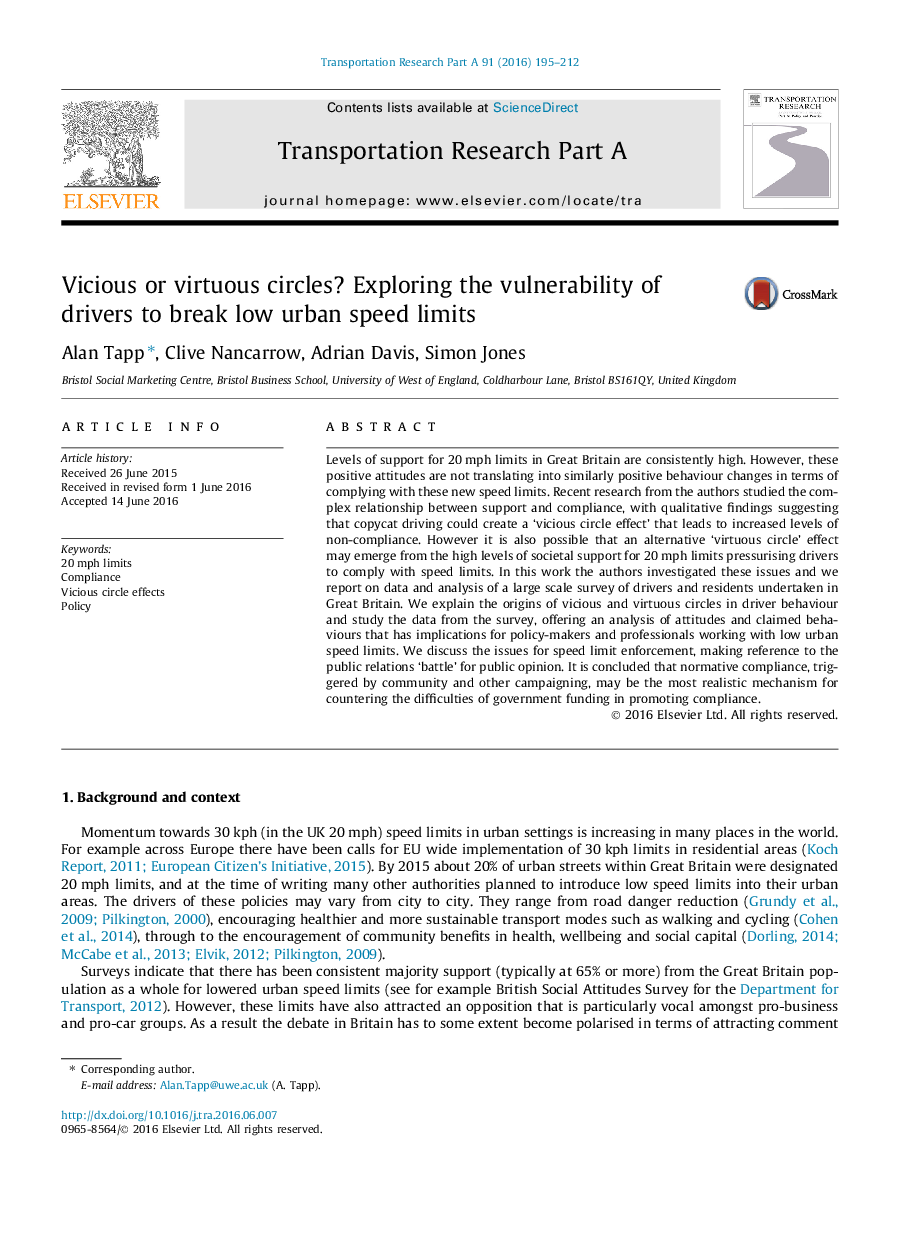| کد مقاله | کد نشریه | سال انتشار | مقاله انگلیسی | نسخه تمام متن |
|---|---|---|---|---|
| 310376 | 533081 | 2016 | 18 صفحه PDF | دانلود رایگان |
• Lack of compliance with 20 mph limits in GB and 30 kph limits in Europe is concerning.
• Data was collected amongst a representative sample of the GB population.
• The possibility of large scale shifts towards greater non-compliance was examined.
• Results identified possible ‘vicious circle’ effects between drivers.
• Implications for policy makers are discussed.
Levels of support for 20 mph limits in Great Britain are consistently high. However, these positive attitudes are not translating into similarly positive behaviour changes in terms of complying with these new speed limits. Recent research from the authors studied the complex relationship between support and compliance, with qualitative findings suggesting that copycat driving could create a ‘vicious circle effect’ that leads to increased levels of non-compliance. However it is also possible that an alternative ‘virtuous circle’ effect may emerge from the high levels of societal support for 20 mph limits pressurising drivers to comply with speed limits. In this work the authors investigated these issues and we report on data and analysis of a large scale survey of drivers and residents undertaken in Great Britain. We explain the origins of vicious and virtuous circles in driver behaviour and study the data from the survey, offering an analysis of attitudes and claimed behaviours that has implications for policy-makers and professionals working with low urban speed limits. We discuss the issues for speed limit enforcement, making reference to the public relations ‘battle’ for public opinion. It is concluded that normative compliance, triggered by community and other campaigning, may be the most realistic mechanism for countering the difficulties of government funding in promoting compliance.
Journal: Transportation Research Part A: Policy and Practice - Volume 91, September 2016, Pages 195–212
